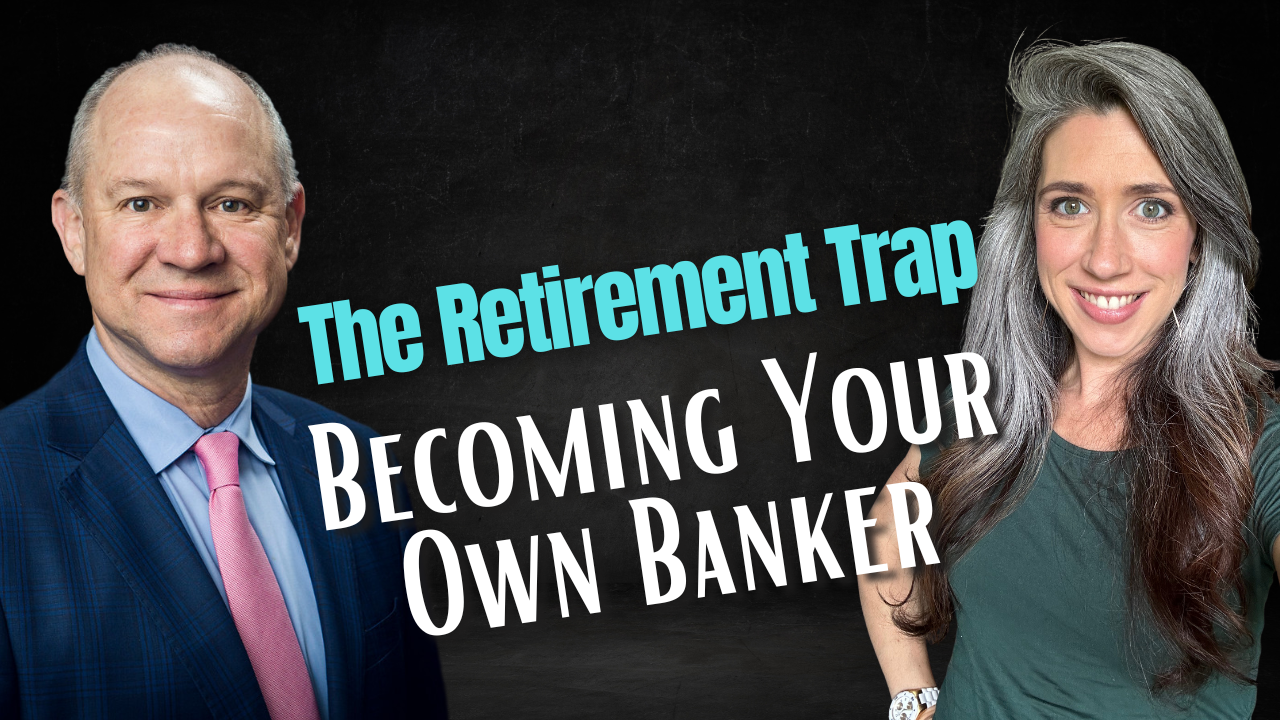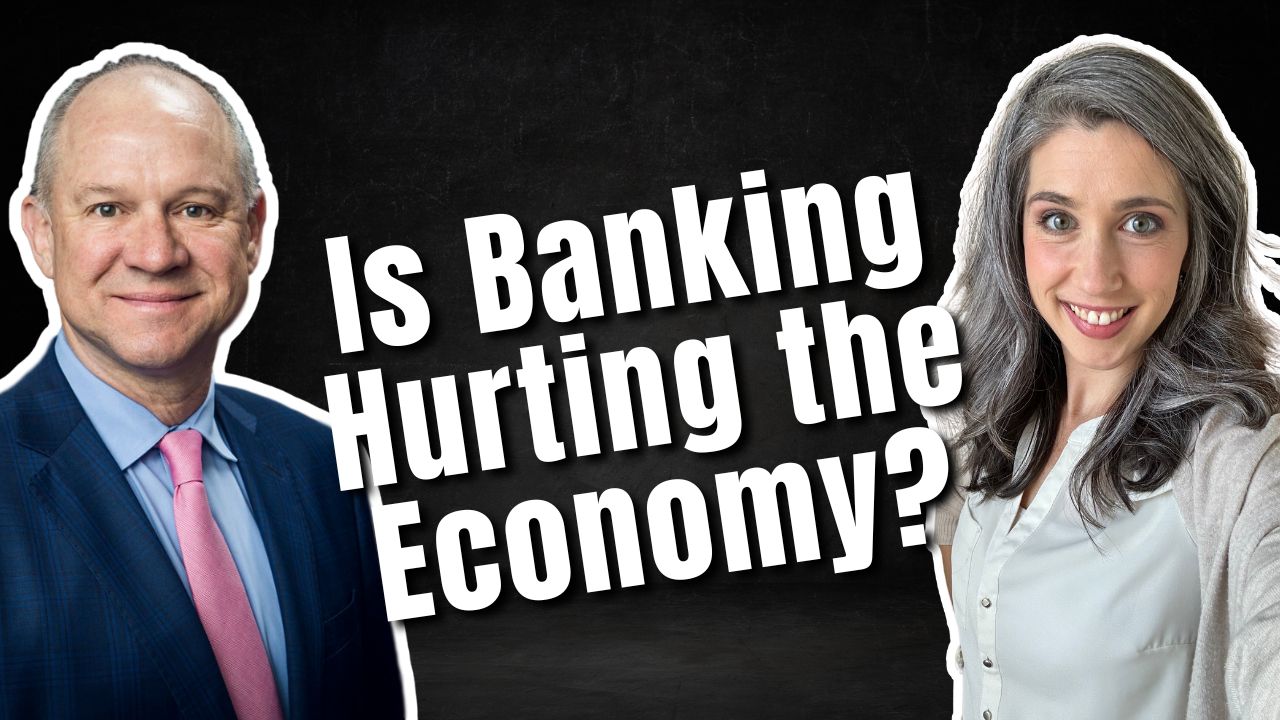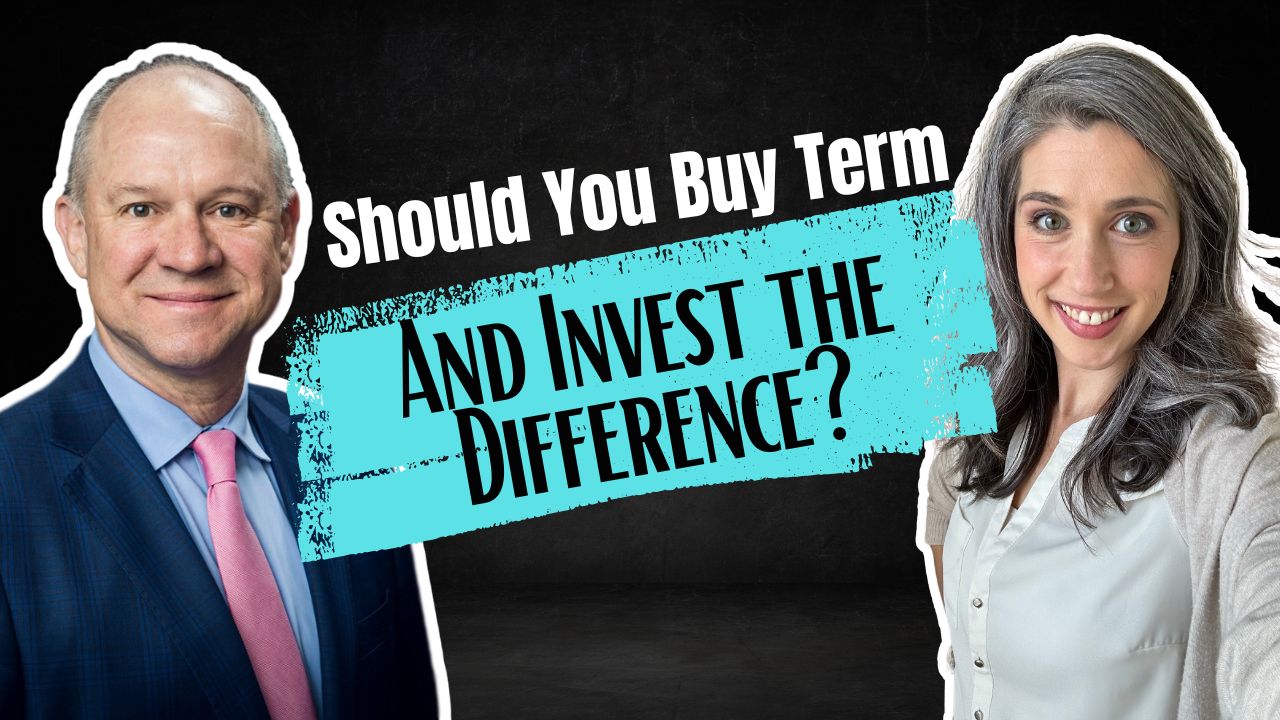
Becoming Your Own Banker, Part 19: The Retirement Trap
Prepare to see retirement in a new light as we dissect the traditional financial paradigm and question the perceived desirability of retirement. We promise to challenge your current beliefs and open your eyes to the pitfalls of relying solely on government plans for a secure financial future, and why we call it the retirement trap. Join us as we scrutinize Nelson Nash’s Infinite Banking Concept as we continue reviewing Becoming Your Own Banker, a game-changing perspective on personal finance control.
We’ll unpack Nash’s audacious prediction – the demise of social security, and its potential propping up using reserves like private pension plans. Exploring the history and evolution of social security since 1935, we’ll reveal how this system has been a crutch for failing social programs. Uncover the importance of being in charge of your own finances, countering the fear of running out of money.
Embrace a fresh perspective on retirement, replacing it with the concept of ownership. Listen in as we encourage continuous work and service to others, all while honing your skills. Learn how to break free from the government’s influence on your income and escape the retirement trap it creates. We’ll show you how to transform your life and business into something you love, by seizing control of your finances. Tune in, and let’s together model successful people, reflecting on the difference between being controlled and being in control.
Join us as we continue the series through Nelson Nash’s work, Becoming Your Own Banker, to discuss the pitfalls of social security, pensions, retirement, and why you are better off without them.
Podcast: Play in new window | Download (Duration: 57:46 — 66.1MB)
Subscribe: Apple Podcasts | Spotify | Android | Pandora | RSS | More
Table of Contents
Rethinking Retirement as a Financial Goal
[06:50] “[Nelson] talks about how the American people are programmed both willingly and unwillingly.”
What we mean by this is that we are constantly being bombarded with information, advertisements, and opinions that influence our worldview, both intentionally and unintentionally. We absorb so much about every conceivable topic, and the way most people view retirement is no different. Narratives are being fed to us about the “right” way to retire. The question is, are these ideas really helpful? And do they actually serve your personal goals for your money?
We want to urge you to rethink your worldview, even if your ultimate conclusion stays the same. Because without that examination, how can you know that you have all the information you need to make the best possible decision for you?
So today, we’re looking at the typical worldview of retirement, and asking the question: Is retirement what you should be striving for?
What is the Retirement Trap?
Retirement, and the concept of Social Security, is a socialist idea. It requires you to give up some financial control now by paying into the system so that in the future the government can supply what you need. This is the very zoomed-out perspective of the situation, but it begs the question: How much can you rely on the government to take care of me, and why should you?
The earliest and simplest form of retirement was created as a way to take care of people who lived well beyond the life expectancy of the time because people generally worked their entire lives. In essence, this system was only meant to take care of those outliers that lived beyond life expectancy and perhaps couldn’t work. Now, life expectancy far exceeds age 65 or 70, and it’s a system we still implement.
The problem is that when you relinquish control of your future earnings to the government, you have to trust them to provide. They’re in control, and your income is at their mercy unless you can otherwise supplement it. It’s not a reliable or sustainable way to live.
[15:40] “Nobody takes care of your money the way you take care of your money. Now, a lot of people have good intentions, and in a capitalist society, you can get closer to taking care of people’s money better because you have an incentive… But when you don’t have a vested interest, like the United States government… they’re going to get paid their salary whether it works or not. Nobody’s held accountable.”
This is why it’s critical to stay in control of as much of your own money as possible.
Government-Sponsored Retirement Traps Accounts
Social Security income isn’t the government’s only way of controlling your money, however. People hand over control of their dollars every single day by contributing to their 401k or their IRAs, which offer incentives like tax deferral. However, that money gets locked away and is difficult to access until you reach the distribution age. Then, when you’re ready to take that money as income, you’re hit with the taxes. In the meantime, the government gets to enjoy control over those funds.
So who is actually benefitting from qualified plans like the 401k? While of course there’s some benefit to you now, your future self might not be as pleased with the results.
[25:50] “It’s kind of like writing a blank check, in a way. You’re putting money in, hoping that it turns into something valuable for you. In the future, you’re going to have to pay taxes at an unknown rate, because we don’t know what tomorrow’s tax rate will be, and you don’t know what the growth pattern of your money is going to do along the way either. So you don’t know what ending balance you’re going to end up with.”
With whole life insurance, you DO know what you’re going to end up with—your cash value is always creeping toward your death benefit (which is also rising, too). This makes your future highly certain and predictable, and you can always add to it if you’re seeking more.
How Can You Avoid the Retirement Trap?
So what do you do if you don’t want to relinquish control of your money, and you don’t want to be dependent? First, you’ve got to establish what the purpose of your money is, and what you want from it. Do you want to have control over your own funds so that you can grow it and use it as you wish? Do you want to leave a legacy, or create generational wealth? Or do you just want to create as many opportunities for yourself and your family as possible?
If these are things that sound good to you, then you’ll want to consider an asset like whole life insurance that you can use over the course of your lifetime. It’s not just an asset you have to wait to enjoy—it can provide you with opportunities now, too.
And if you don’t want to be dependent on any institution, consider what retirement actually offers you. If you find work that you enjoy doing, why would you want to stop? If you’re enjoying the income you receive, why would you cut it off?
Some people cite “free time” as the reason they want to retire, without realizing that the proper wealth strategies now can help you take more “free time” throughout your entire life, not just when you’re 70. You can take vacations and travel and make memories with your family now, if you choose to create that path for yourself. And if that’s true, what reason is there to retire? You can have financial freedom, time freedom, and an enjoyable career over your lifetime without getting caught in the retirement trap if you wish.
It takes work, good habits, and dedication, but you can do it.
The Value of Ownership
In addition to controlling your money, consider the value of “ownership” over your time. Most people want to disengage from the work that they do because they are simply trading time for money. If this doesn’t work for you, the alternative is ownership—creating value in the marketplace and serving the needs of others with a product.
Becoming an entrepreneur or a business owner puts you in a position to serve others and stop trading time for money. Instead, you create a product or service that people want and make it scalable. By doing this, you can increase your profits without increasing your time—whether this be through automation, hiring new team members, creating additional products, and more. With entrepreneurship, the sky is truly the limit.
[45:10] “If you feel like you’re just reading time for money, you are putting in the time, doing what someone else tells you to do, and taking home a paycheck, you’re not going to feel that sense of control. Unfortunately, many people don’t step outside of that paradigm to realize that… our system punishes the employee mindset. It tells us that that’s what we need to do, but then punishes that mindset and really rewards the business owner. So ownership is the paradigm or the path to being in a position of recognizing the value or the needs of other people.”
Book a Strategy Call
Would you like guidance for creating a meaningful and impactful family legacy? Do you want to coordinate your finances so that everything works together to improve your life today, accelerate time and money freedom, and leave the greatest legacy? We can help! Book an Introductory Call with our team today https://themoneyadvantage.com/calendar/, and find out how Privatized Banking, alternative investments, or cash flow strategies can help you accomplish your goals better and faster. That being said, if you want to find out more about how Privatized Banking gives you the most safety, liquidity, and growth… plus boosts your investment returns, and guarantees a legacy, go to https://privatizedbankingsecrets.com/freeguide to learn more.
Fractional Reserve Banking Creates Inflation: Infinite Banking is the Solution
Inflation causes everything to feel more expensive, so what do you do to protect your money from inflation? Today, we’ll explore the link between inflation and fractional reserve banking, and how Infinite Banking is the sound money solution. A thought-provoking journey through inflation, fractional reserve banking, and the revolutionary concept of infinite banking. This episode…
Read MoreBuy Term and Invest the Difference: Here’s What’s Wrong
Are you trying to decide which type of life insurance to buy? You want to protect your family in case something happens, so how do you do it best? Whole life insurance is often rejected as expensive and a poor “investment,” while mainstream opinion leans in favor of the “buy term and invest the difference”…
Read More


